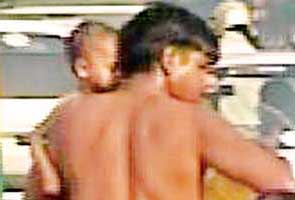From PunjabOnLine
Jagmohan Singh
Tuesday, 26 October 2010
AMRITSAR: The 18 member delegation led by Indian Border Security Chief Raman Srivastava here Tuesday crossed over to Pakistan to hold dialogue with his Pakistan counterpart at Lahore.
This is first time in the Indian history wherein, chief of Indian Border Security Force (BSF) crossed over to Pakistan to hold dialogue on the issues of cross border smuggling, infiltration and unprovoked firing.
Earlier various senior BSF higher rank officers crossed over to Pakistan but this is new precedent that DG rank officer of BSF crossed over to Pakistan to discuss key issues related to security of the Indian Nation.
Before crossing over to Pakistan, Raman Srivastava said, “Meeting with the officers of Pakistani Border Security Force and other related officials would continue from October 26 to 30th October 2010”.
Srivastava informed, “During meeting with Pakistan, various key issues including unprovoked firing, infiltration, smuggling of narcotics, fake Indian currency, arms and ammunition besides other problems faced by both the forces during joint patrolling to be discussed”.
Adding further he said that this meeting with Pakistan officials would create better relationship between the two border guarding forces which would pave way for dialogue in future to discuss various key issues.
Talking about the rocket attacks by Pakistan to Indian Territory, near to Attari border, Srivastava said that Pakistan was well aware of the attacks and in this regard investigation being carried out by Pakistani CID to bring out the truth as who were responsible for attack to Indian territory from Pakistan.
It is pertinent to mention here that Pakistan had fired five rockets into Indian Territory which fell on the civil area of border villages during intervening night of January8-9- 2010. However, earlier, first
attack was last year on July 5, 2009 when three rockets were fired and second time September 11, 2009, Pak had fired five rockets towards Indian Territory which fell in the open area at agriculture field at
border villages Modhey and Dhoneya Khurd, Rattan Kallan and Dalekey and BSF in a retaliatory action had opened fire of machinegun.
Srivastava refused to talk on the issue of China border by saying the only two international borders of Pakistan and Bangladesh being looked after by the BSF and China border being looked after by some other Indian force as not by BSF.
Total members of the delegation of BSF were nineteen including DG Raman Srivastava, Special DG West Parmpal Singh Sidhu, IG Himmat Singh and IG Krishan lal Meena were the part of Indian delegation.



 Chief Minister Naveen Patnaik chaired the weekly meeting on Law and Order Review here on 26 October.
Chief Minister Naveen Patnaik chaired the weekly meeting on Law and Order Review here on 26 October.